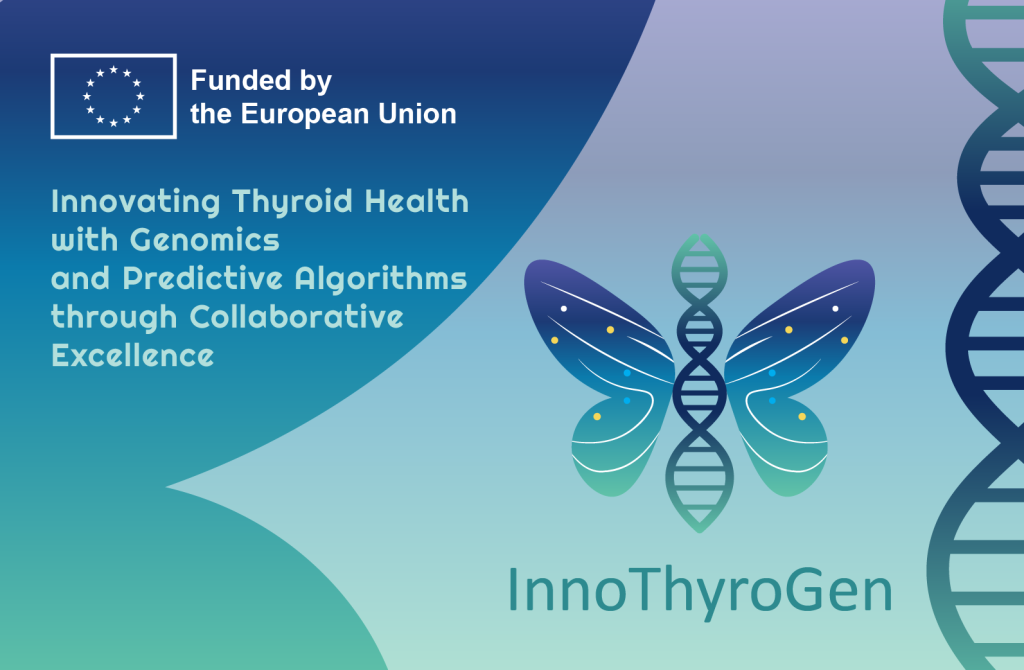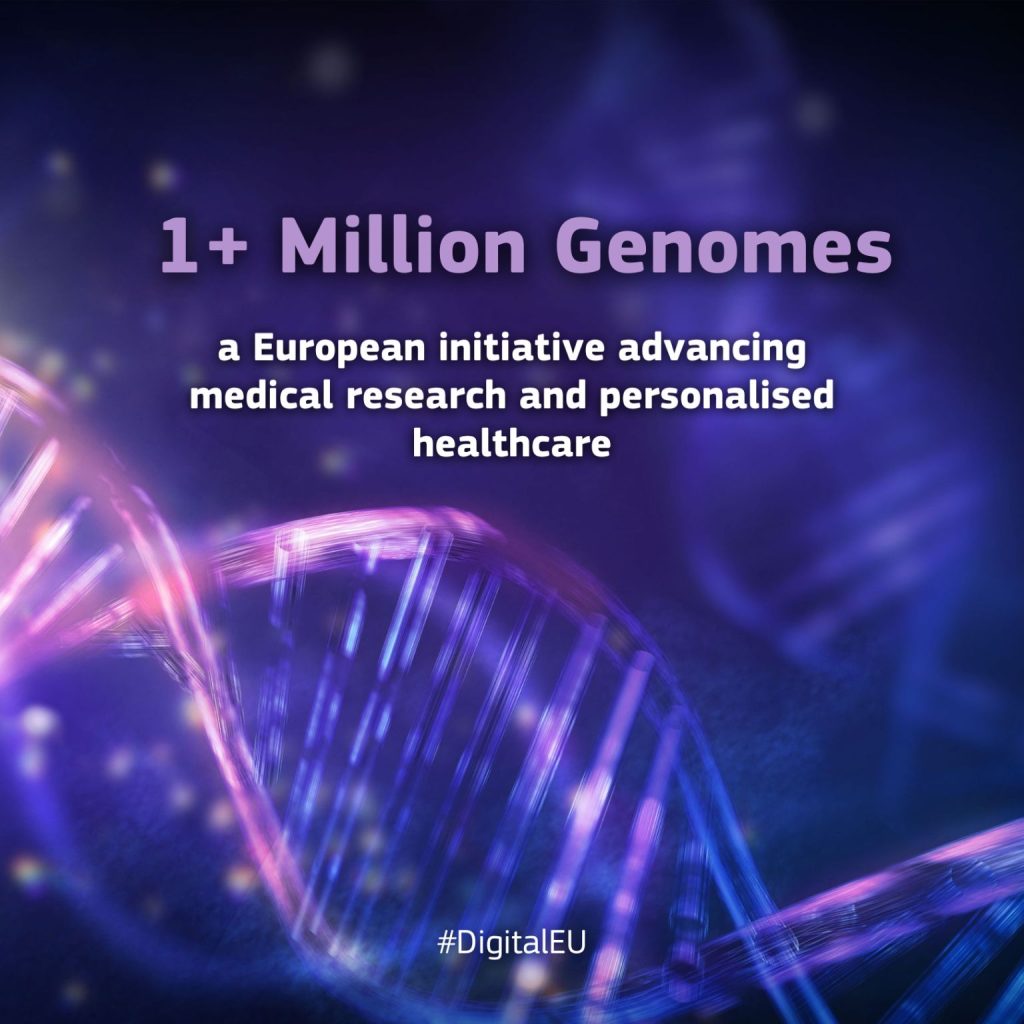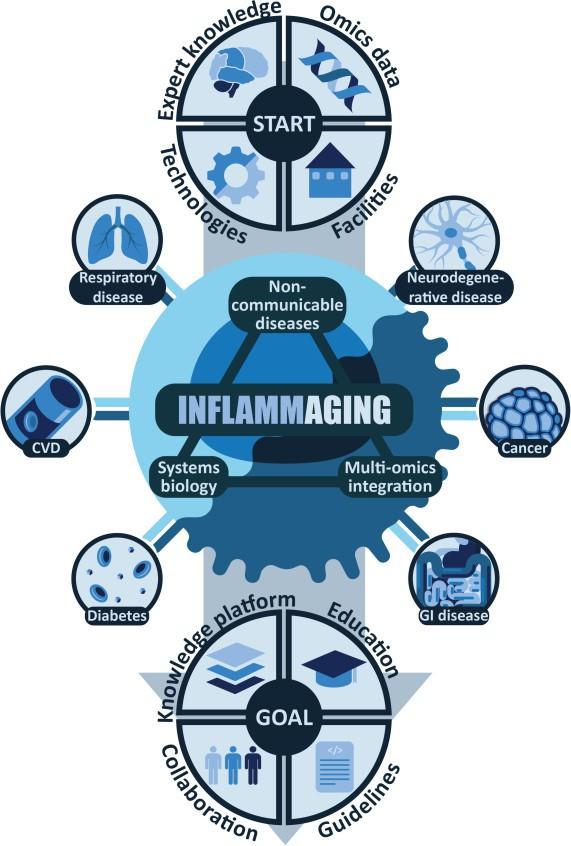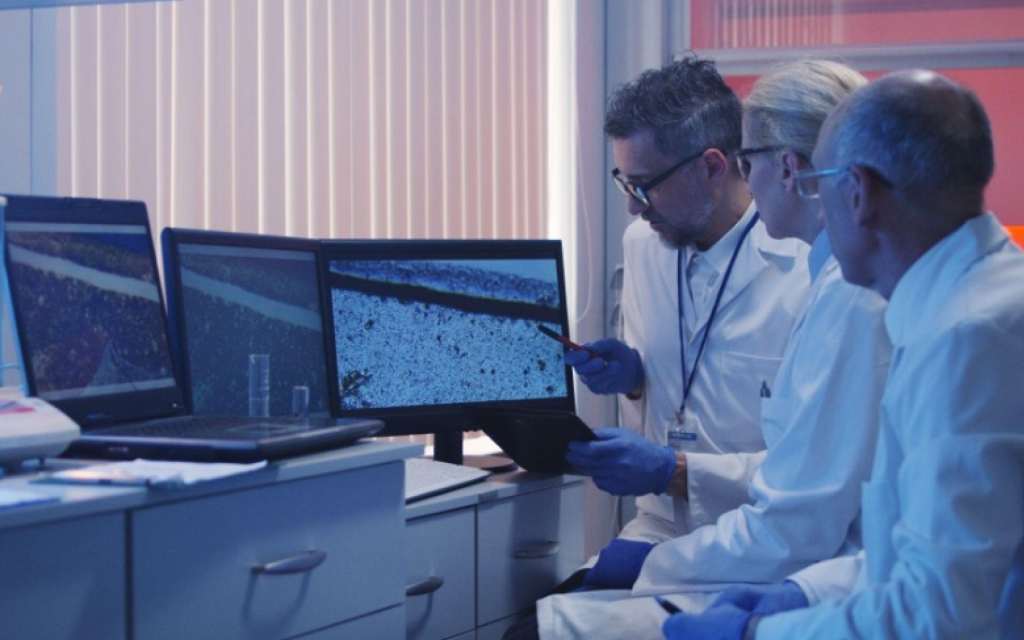Projects
01
Genetic and Biomedical Data Registry
The project aims to establish an information system and introduce standards for the storage and exchange of genetic data, including technical and data protection aspects. The Registry will be accessible to scientific and health institutions, and the data will be utilized for research and development in the fields of biotechnology, bioinformatics, bioeconomy, genetics, and medicine.

02
InnoThyroGen – Horizon Europe project
The InnoThyroGen project, funded through the Horizon Europe programme, aims to improve the diagnosis and treatment of thyroid diseases through the application of personalised medicine, using genomics, artificial intelligence, and digital health. The consortium brings together thirteen partners from Croatia and Serbia, with IMGGE serving as the national coordinator in Serbia, and C4IR Serbia contributing by analysing the ecosystem and preparing the healthcare and regulatory framework for the adoption of innovative solutions. The project will advance the development of tools for early diagnosis and personalised therapy, strengthen regional cooperation, and raise awareness of the importance of personalised medicine.

03
Genome of Europe project
The “Genome of Europe” project, worth €20 million and co-funded through the Digital Europe programme, will gather 100,000 European citizens to establish a unique genetic database of the European population. The aim is to advance personalised medicine, public health, and scientific research. Serbia is one of 29 participating countries, with the Office for IT and eGovernment and the Centre for the Fourth Industrial Revolution Serbia, as well as the Institute of Molecular Genetics and Genetic Engineering, taking part in the project with the support of relevant ministries. This is the first project under the Digital Europe programme in which Serbia participates on equal footing with EU member states.

04
INFLAMomx – COST project
The INFLAMomx project focuses on researching inflammaging—a chronic, low-grade inflammation associated with ageing that contributes to the development of multiple chronic non-communicable diseases. The project’s main goal is to develop a bioinformatics framework for integrating omics data from different sources to enhance the understanding of this process and support its clinical application through more precise diagnostics and prevention. It also aims to build a pan-European network of researchers in biology, medicine, and bioinformatics, while promoting standardisation of methods, training of a new generation of scientists, and strengthening cooperation between science, healthcare, and policymakers. The C4IR Serbia team, as part of the Office for IT and eGovernment, contributes by developing standards and frameworks for data integration, using national resources such as the State Data Centre and the National AI Platform, and by engaging in activities related to clinical implementation, education, and project dissemination.

05
NSCLC
The Centre collaborates with the Institute of Molecular Genetics and Genetic Engineering (IMGGE) on a research project focused on NSCLC (Non-Small Cell Lung Cancer). The Centre’s involvement includes providing essential IT infrastructure resources for the secure storage of clinical and genetic data, as well as supporting coordination and communication among project participants.

06
Public opinion survey
We are conducting a public opinion survey on the opinions and knowledge of Serbian citizens about genetics in general, genetic research, and genetic testing. The aim is to educate and raise awareness among the wider population about the importance of genetics’ application in healthcare and science.

07
Strengthening the bioinformatics community
Through our activities and projects, we continuously work to strengthen the bioinformatics community. These efforts have resulted in the establishment of the Genomics Section within BIRBI, and we are also planning to establish the Genetic and Biomedical Data Registry, and to introduce a formal educational program in this area.

08
DNA screening
The project involves analysis of the complete genetic material of 1000 volunteers. The data obtained from the analysis of the whole genome will be used to investigate the influence of genetic characteristics on the development of chronic diseases and hereditary disorders. Additionally, the project will interpret hereditary components associated with the risk of cardiovascular and malignant diseases. Furthermore, the project will explore pharmacogenetics, which studies individual responses to specific drugs or drug doses.

